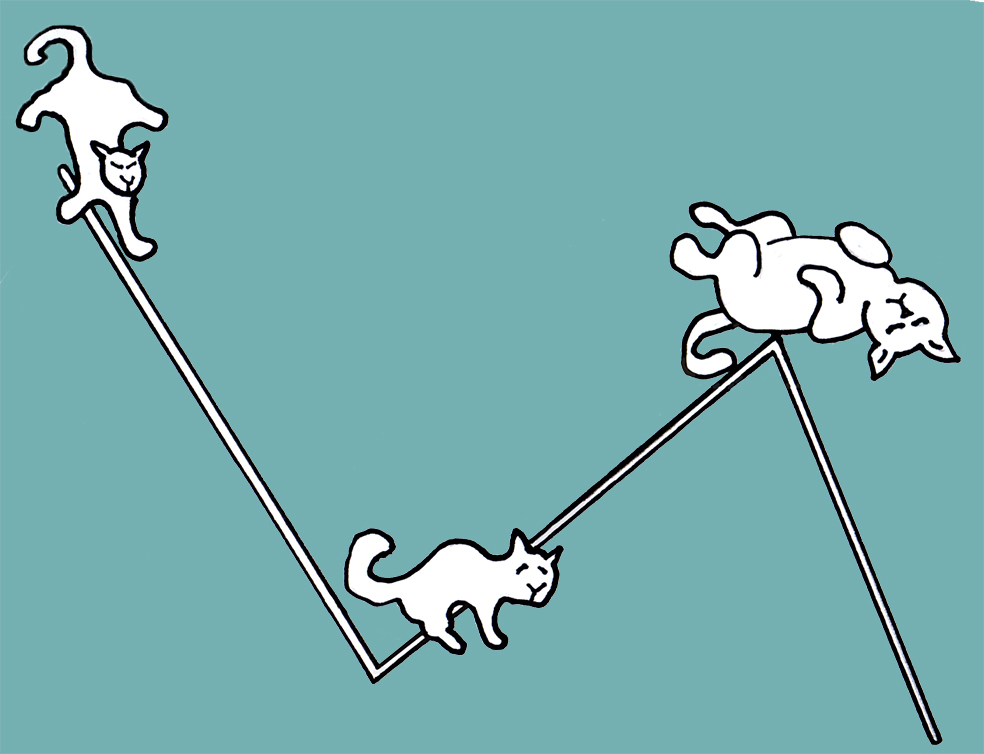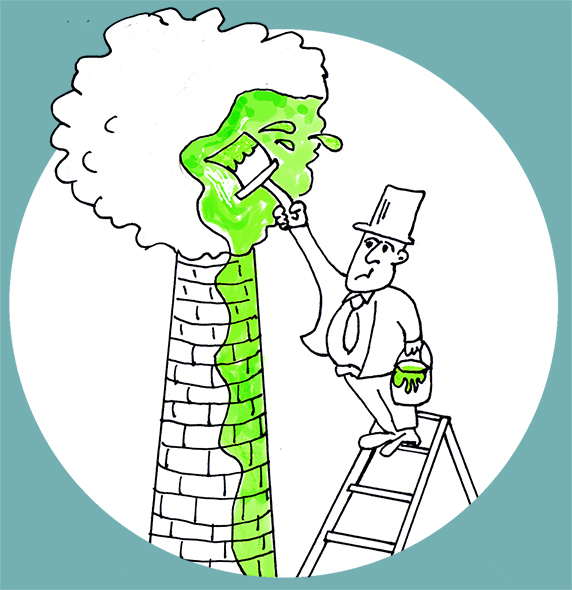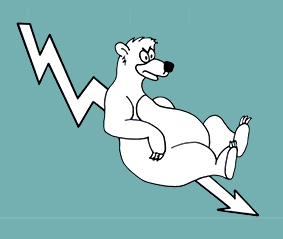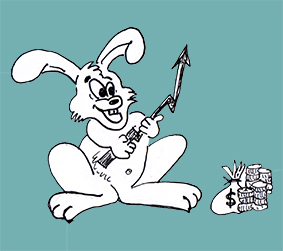……markets are likely to remain rocky, argues Ms Hooper. “We’re certainly getting closer to the bottom, but I don’t think we’re at it yet,” she said. “This is probably a dead cat bounce.”
Financial Times March 13 2020
Let’s face it, this expression does nothing to help convince you that traders are charming people you’d like to introduce to your parents! Be that as it may, the expression has come up a fair amount recently so needs some elucidating (=explaining).
Basically, a dead cat bounce is a small, short-lived recovery or rebound in a downward trend of a market, otherwise known as a bear market.
Simple as that. At least, simple to say, but not simple to spot, because in the heat of the moment, how do you know whether it’s a temporary rebound or that the market has bottomed out?
That’s the million dollar question and obviously if they could be clearly identified at the time, then I would be a multi-millionaire by now. They are in fact identified with hindsight, that is looking backwards.





